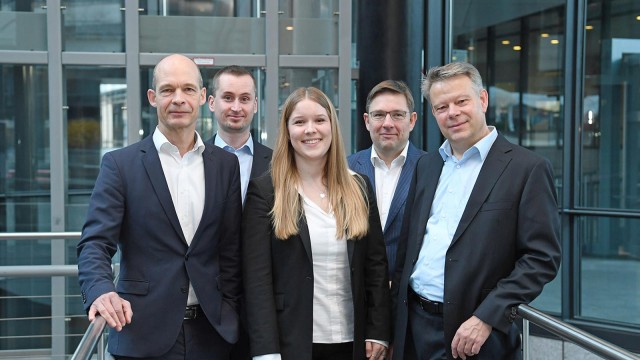Sustainability Advisory for Financial Institutions and Institutional Clients
LBBW’s Sustainability Advisory unit prepares savings banks, conventional banks and institutional investors for the challenges of a sustainable finance industry.


The European Union is driving the transition to sustainable business with frequent new disclosure obligations and regulations such as the EU taxonomy. People, companies, and not least of all financial institutions have to prepare for this. LBBW aims to help the finance sector to master this transformation with its specialist experts. The Sustainability Advisory team is taking on this task for financial institutions and institutional clients.
Sustainability is about more than just CO₂ emissions. The abbreviation ESG shows how multifaceted it is: E stands for environment, S for social, and G for governance. Supervisory authorities are asking financial institutions to estimate and assess their ESG risks. This applies equally to the lending business and to capital investments – and even to clients’ investment products.
Financial institutions rethinking their investment
Banks, savings banks, and institutional clients – such as insurers, pension funds, social security agencies, and professional pension schemes – are all asking themselves the same question: “Which rules should we follow when investing?” The experts from the Sustainability Advisory team help institutions to answer this question with extensive analyses based on a wide variety of data, which they obtain from the leading sustainability agency ISS ESG. These data allow individual companies and countries to be evaluated using standard- and sector-based criteria as well as different ratings and scores and even extensive climate analyses to be performed.
Europe is to be carbon-neutral by 2050. By as early as 2030, CO₂ emissions are to be lowered by 55% with the aid of the “Fit for 55” package. In order to achieve this target, emissions trading with CO₂ certificates is being expanded. Particularly for companies in high-emission industries, this is giving rise to new risks. Institutional investors are currently asking themselves whether they want to share in these risks and how they can support the transformation to a low-CO₂ economy. To this end, the Sustainability Advisory team can perform extensive assessments based on CO₂ data from the respective issuers. Emissions intensity, carbon footprint, scenario analyses, and specific risk scores are important indicators here.
Banks and savings banks making their credit portfolios more sustainable
Many financial institutions are currently realigning their credit portfolios, paying greater attention to sustainability risks. This first step is to establish transparency. The Sustainability Advisory experts create this by classifying the credit portfolio using a specially developed, sector-based heat map. For sectors with high ESG risks, risk profiles are drawn up and suitable measures such as industry guidelines derived.
Sustainability should be seen not as a regulatory obligation but as an element of holistic management – this is the only way to take the associated opportunities.
At the same time, institutional clients are increasingly interested in sustainable investments. When it comes to pioneering technologies, for example, LBBW’s expertise is a valued tool.
Sustainable business, holistic management
Only when potential risks are transparent can sustainability be meaningfully integrated into business and investment strategies. LBBW’s advisory experts see and impart sustainability standards not as a regulatory obligation but as an element of holistic management – this is the only way to take the associated opportunities. At LBBW, Sustainability Advisory is therefore strategically integrated into the long-standing advisory unit for banks, savings banks, and institutional investors.
Within this framework, the team is increasingly advising larger institutions that want to improve their own ESG rating or to put their sustainability activities up for external assessment by a rating agency for the first time. In this rating advisory process, LBBW can also draw on experience from its own rating processes.
Do you have questions?
Feel free to contact us!

Fabian Steil

Michael Flämig

Lisa Friedrich

Katharina Moser

Julian Drzymalla
This page was last updated on January 13, 2023

